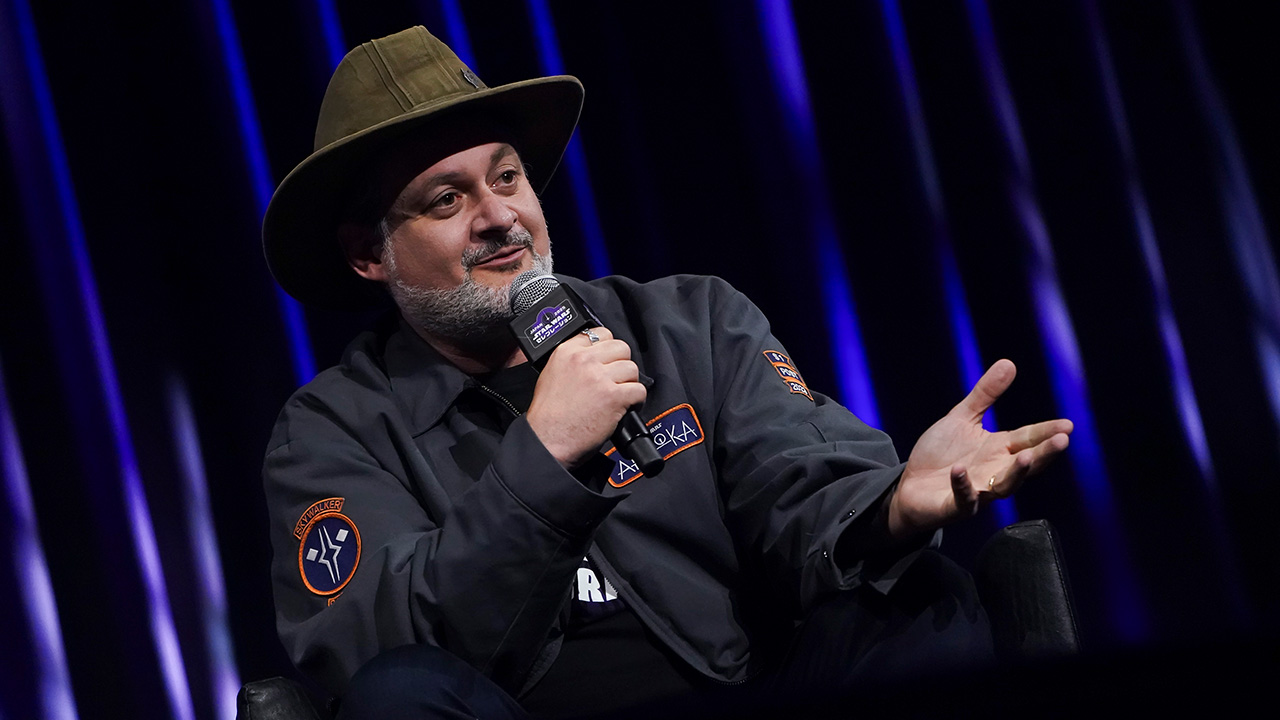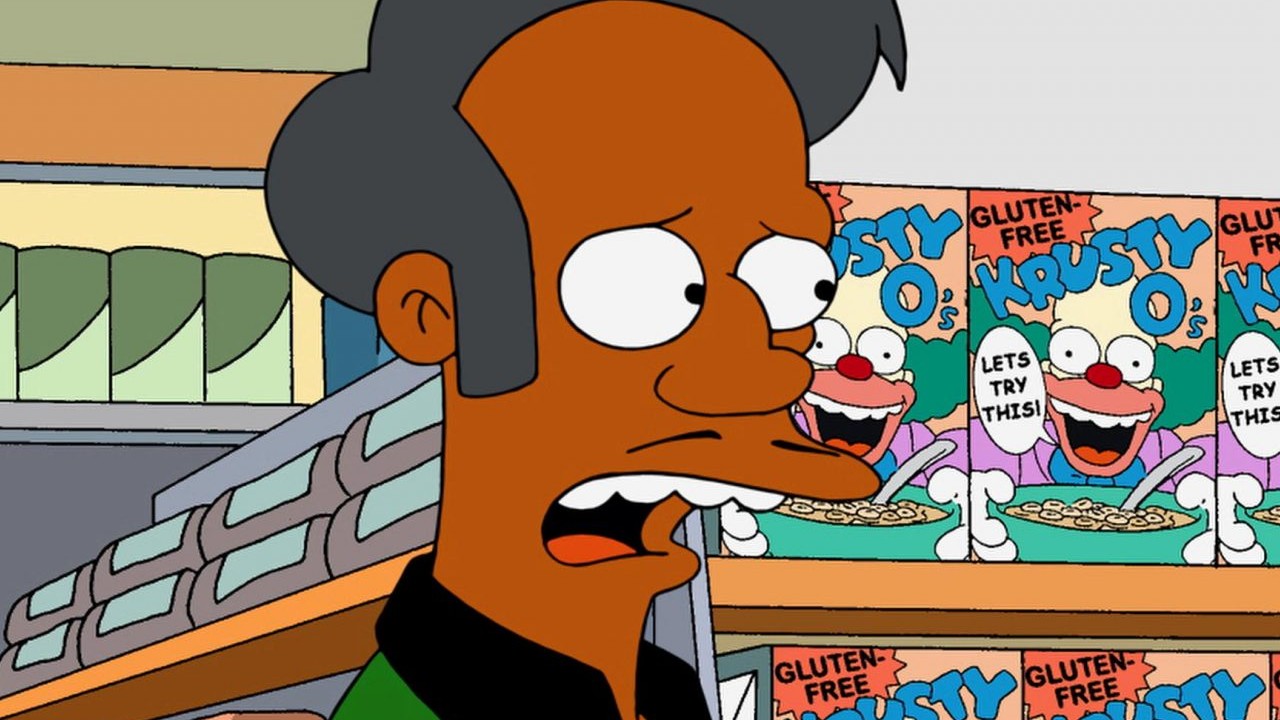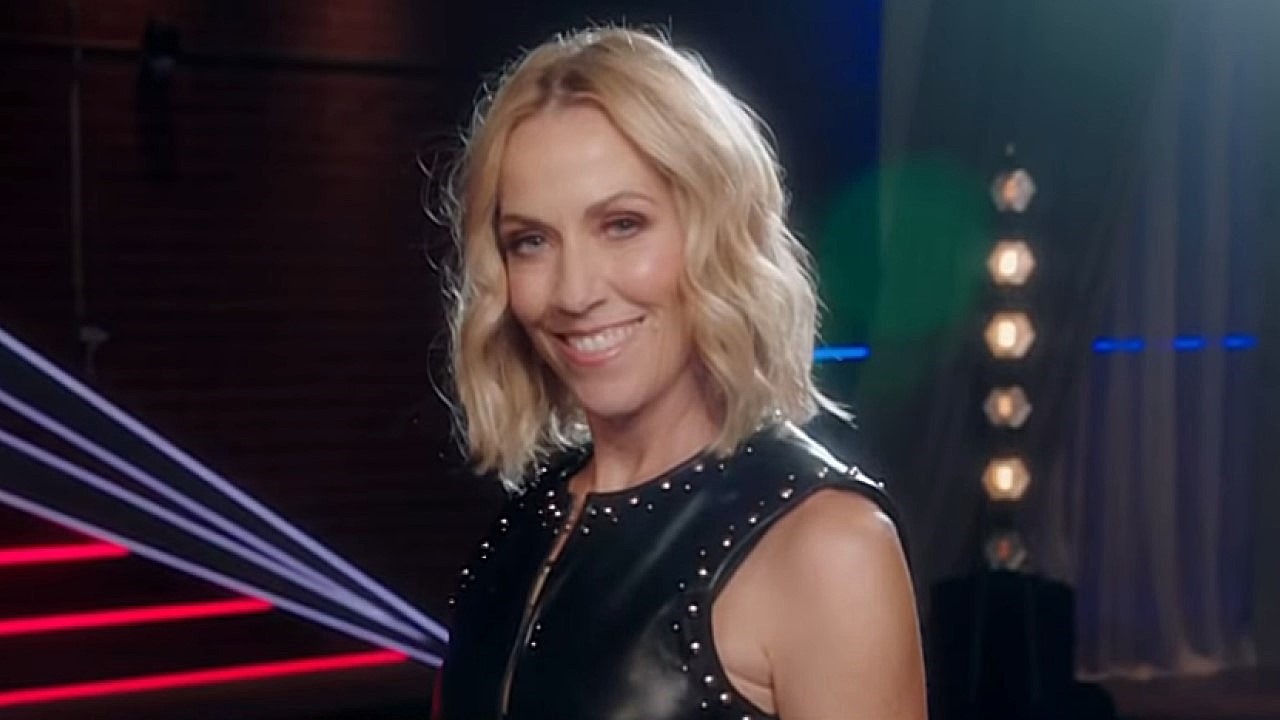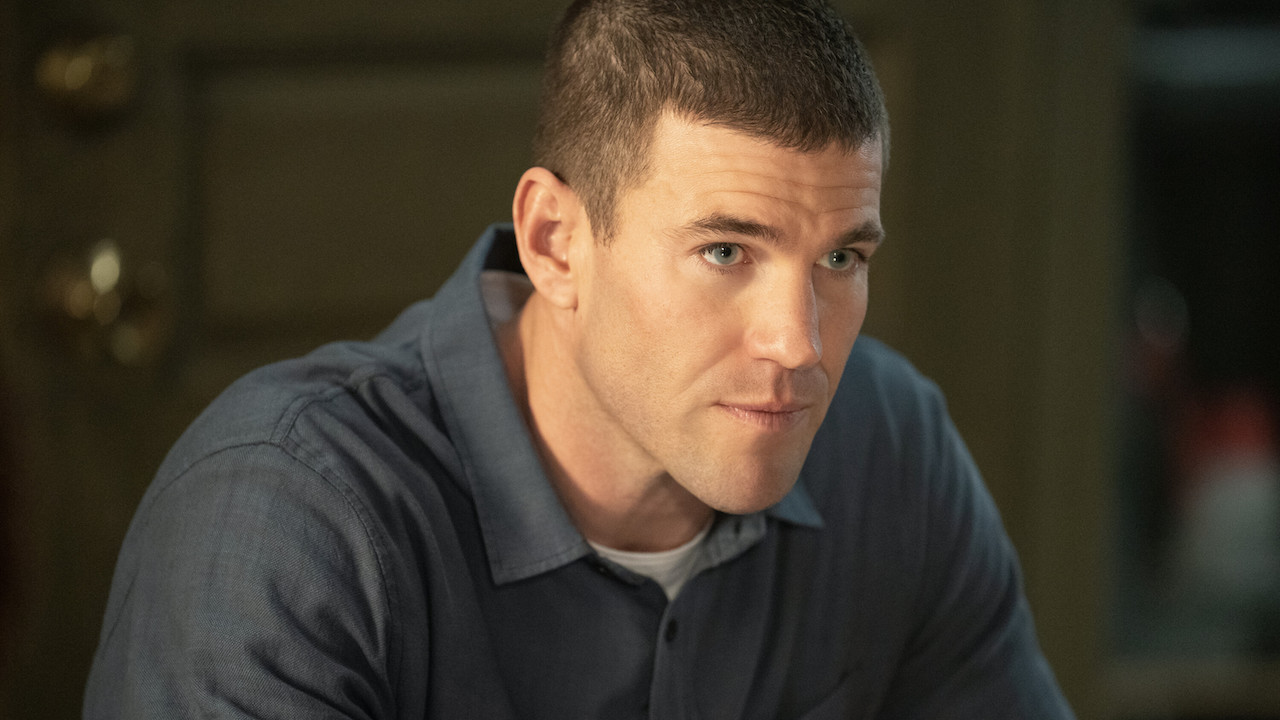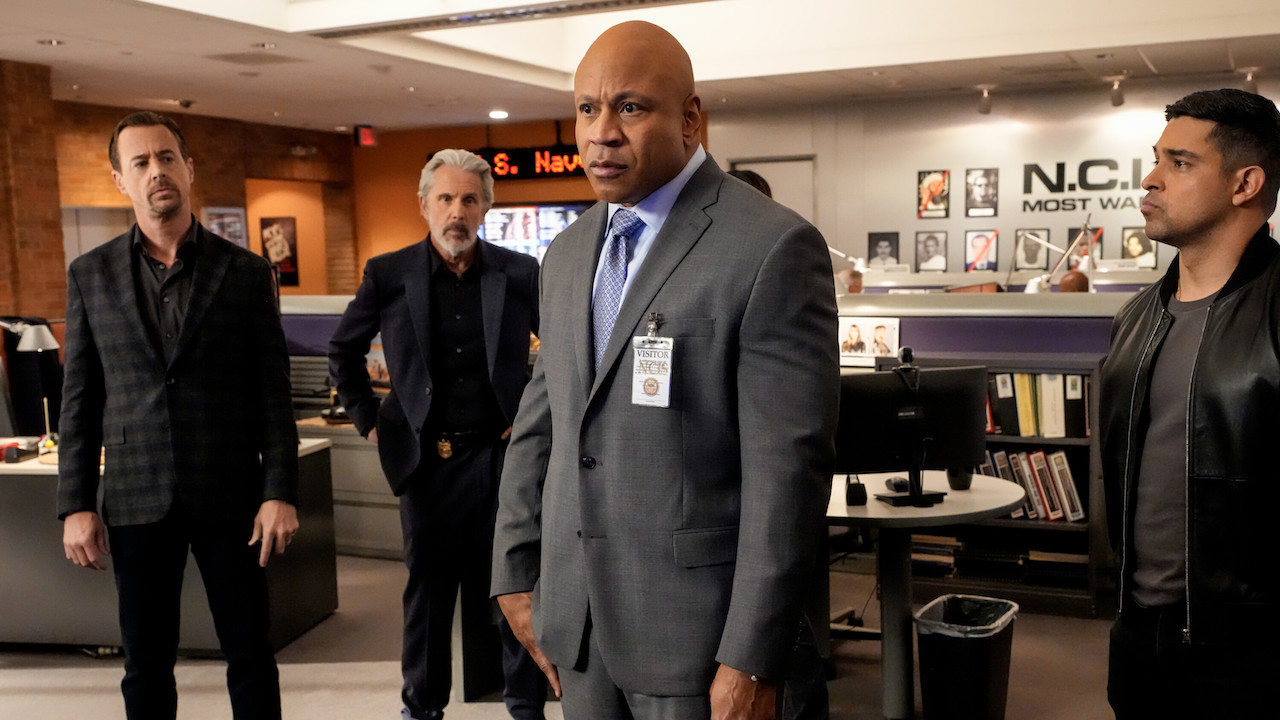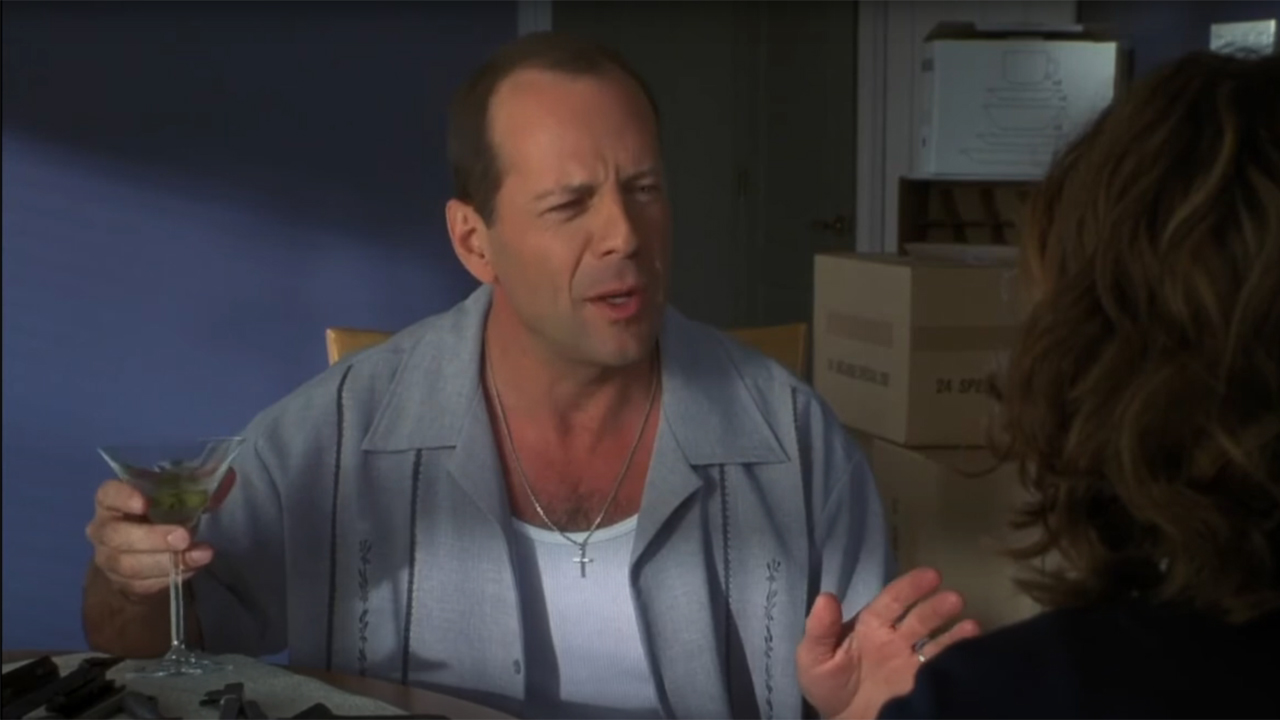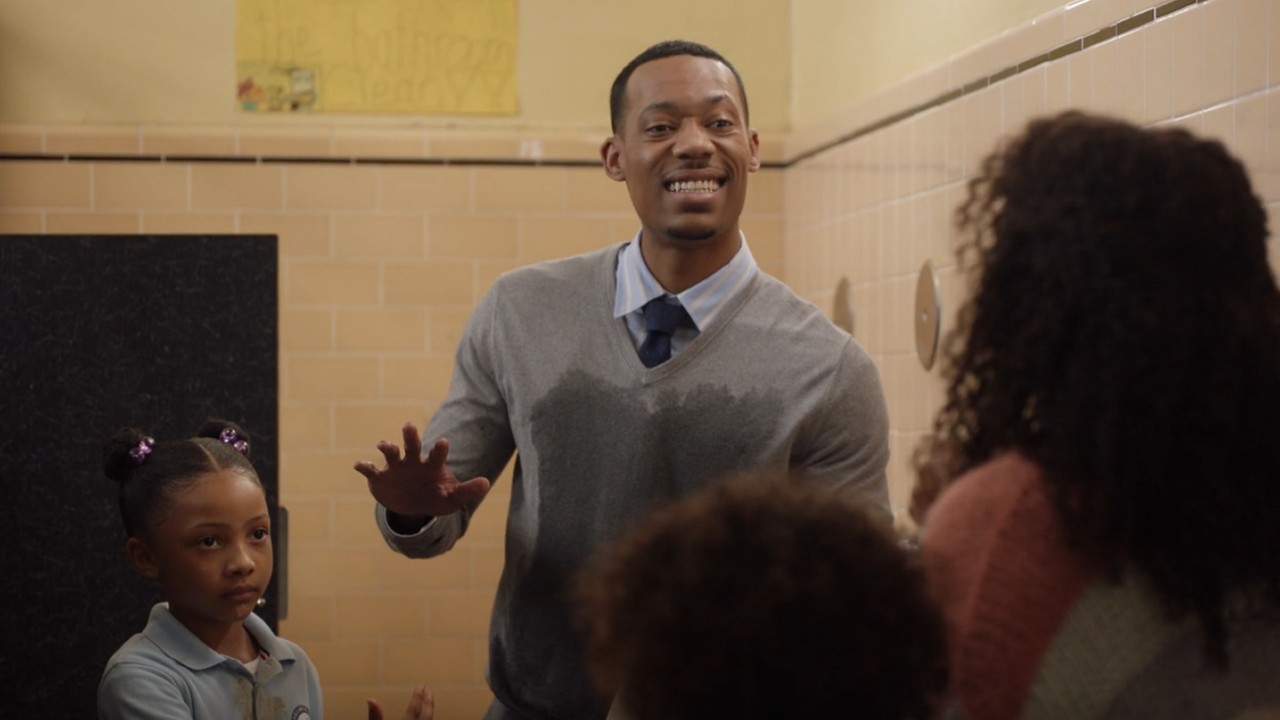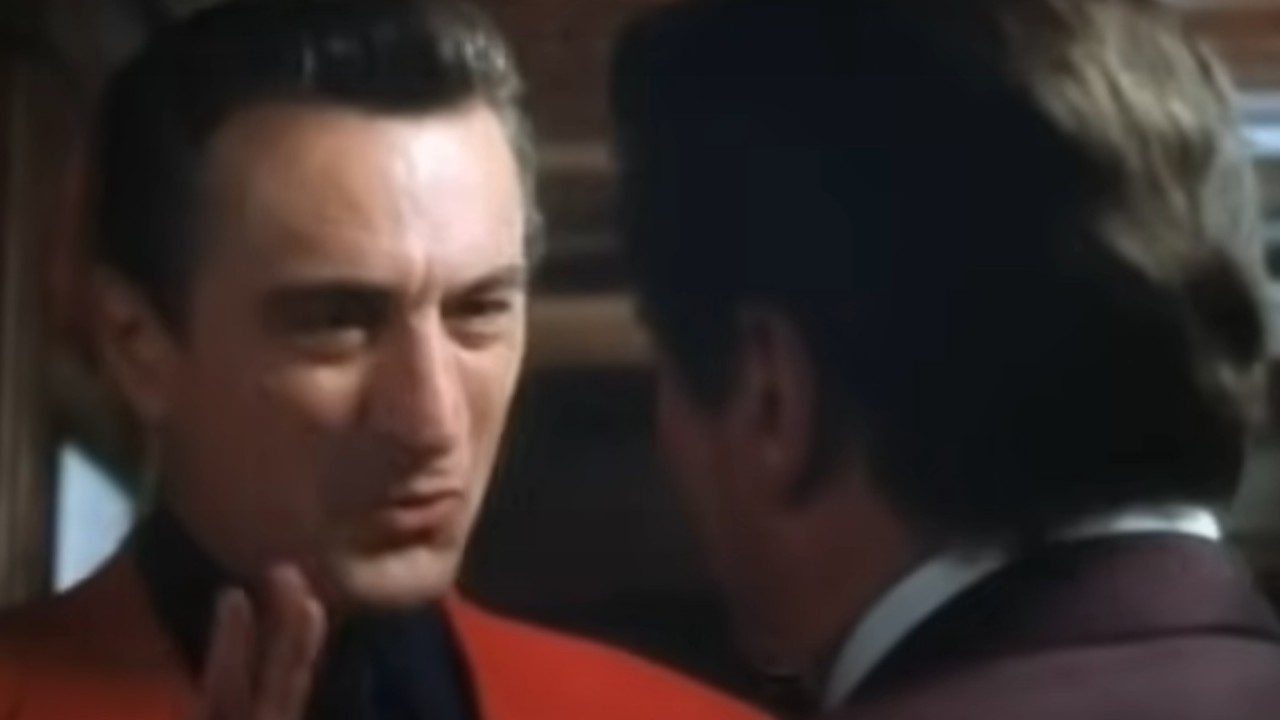Interview: Sucker Punch's Carla Gugino And Oscar Isaac
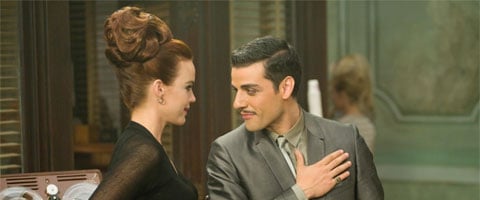
As you’ve likely gathered from the trailers and plot synopsis, Zack Snyder’s Sucker Punch is about a group of five young women who craft a plot to escape a mental hospital. But where would the story be without a main antagonist and mature voice to help them find their way? That’s where Oscar Isaac and Carla Gugino enter the picture as Blue and Madame Gorski.
Sitting in a roundtable with the two performers, they discussed the reality of their characters both in the asylum and the brothel, their costume designs and their musical number that comes after the credits. Check out the interview below.
I guess the first question is, she’s called Madame Gorski, and we hear a reference at some point to a Polish way or something, is your accent supposed to be Polish?
Carla: What does it sound like to you?
Hungarian, Romanian, I wasn’t sure.
Carla: It is Polish, yeah.
Can you talk a little bit about how you approached it?
CINEMABLEND NEWSLETTER
Your Daily Blend of Entertainment News
Carla: Sure. It actually was not, when I first talked to Zack about this and he asked me about it, we started talking about the character and when I read the script, we weren’t sure, he wasn’t sure where, we were sort of figuring that out. And German was one of the things that came up, and then that felt a bit too somehow on the nose, and then it felt like maybe even she should be American. And then for me that felt really wrong because I started reading that dialogue in the way that I speak, it was too heightened and almost had a poetic nature. It really did make me feel like her choice of words were from someone who English was her second language, and so then I started exploring different ideas of what ones felt the most resonant to me. And because she was very interested in psychiatry and she also had a forward-thinking idea of psychiatry at the time, and certainly was influenced by Freud, and I just all of a sudden started thinking, “Well, if she’s not German, maybe she’s Eastern European...” And then the dance instructors and I had a friend who had this Polish dance teacher who changed her world in a really harsh but ultimately amazing kind of way, so I thought, “Well, maybe she’s Polish.” So at a table reading that we all did I just said, let me give this a shot and let’s here it out loud and see what we think. And then Zack was like, “I think you’re on the right road and that’s what we should do.” Then we started coming up with, Debbie and Zack and I had lists of Polish names and who she was, and then Gorski came from that.
Is it a very self-conscious thing, putting on that accent, or is that something that excites you and intrigues you?
Carla: I love! Personally, just as an actor, I love accents, they’re fun. They really just are. But the truth is that it is much more like a tapestry, it’s much more like a fabric. Once you’re that person you’re never thinking about doing an accent, other than maybe technically if you want to adjust something that you feel is inaccurate or something. But really, it was for me more where, my question came from, where is she from that she behaves in the way that she does and that she has the relationship with him that she does, and she has the relationship with the girls that she does, and that she has the profession that she does. So then came the accent. So it’s actually an integral part, and in fact a really helpful way, especially when you’re filming something over a long period of time, when you come and go, it’s a way that as soon as you start speaking like that person you, everything else kind of falls into place. Sometimes it’s a hat for a character, sometimes it’s a prop, and sometimes it’s a voice. So that was really helpful for me.
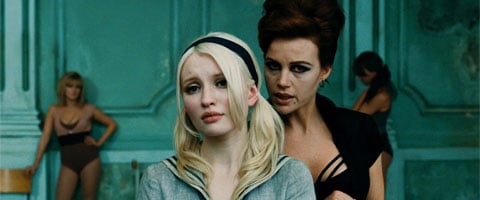
Speaking of the way you interact with the other characters, I’m curious, is there going to be a Zack Snyder movie one of these days where you don’t get knocked around by the guy?
Carla: You know, it’s so funny. Well since we’ve only done two, if I have the honor of working with Mr. Snyder again...I don’t think that’s been intentional.
Everybody gets kind of knocked around
Carla: Yeah that’s true, that’s true. Next time I’ll be like, could a girl knock me around? With Watchmen, obviously it was in the source material so clearly and obviously, that rape scene is so intrinsic to many things that happened in Watchmen. And it was really important on that one, Zack and I spoke about it with Jeffrey Dean Morgan really explicitly because it was never meant to be, the important thing about that was that it was incredibly violent and not sexy, that scene. It’s really brutal. And then in this, this was funny because this I don’t even know, was it initially scripted? I can’t remember now.
Oscar: I don’t think so.
Carla: I don’t think so. I think ultimately when we got to that point in this movie, and thankfully we shot that scene later on, it was really about me wanting to have a moment to express what she has been trying to do, which is protect these girls from [Blue]. And that wasn’t in the initial script and it felt really key. And so then out of that came, when I say this to him his character is in a really, not a good state, obviously, and then that kind of emerged. We worked with the stunt coordinator, obviously it wasn’t improvised in that moment but that, when we started rehearsing that scene and working it through with Zack, so I would have to say I had something to do with that.
There are little, we get those shards in their relationship throughout the film and for me, a greater clue came, sadly, during the credits, in the fog, your production number, and I go, “Ooh.” I mean, you’re a soundtrack artist so, it’s there, it’s just kinda, so tell me about doing that number together.
Carla: That’s so astute. Because it really was very key.
At the end you go, “Oh my god, they’re nuts about each other.”
Oscar: For us, I think that was a big revelatory moment for us just working on the dance, which we had about a month and a half or so to work on it before we actually had to perform it. And at the time it was, as scripted, it was in the middle of the film. And as we worked on it, it did start to reveal all these levels of our, what our relationship may have been. You know, it’s sweet in one moment, and then all of a sudden it’s violent, and then there’s an incredible sexual charge, and then there’s separation. There’s so many of those elements that are only kind of hinted at in the relationship.
Carla: And some sense that they maybe once were great, or this is the area where they can sort of let go of all that other stuff.
Oscar: And Blue is also not only a man in management, but he’s a performer as well, which is strange.
Carla: And that something had just really soured.
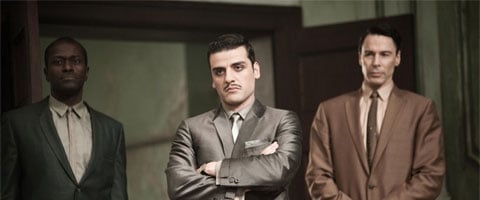
As done, was it a fantasy number or was it really Blue and Gorski doing a number in the club?
Carla: It is. It’s done doing a number in the club and we also see some great dances of everyone but Emily’s character, which you saw glimpses of as well. I think down the road in the director’s cut, you will see the whole, you’ll see it in the body of the movie.
One thing I wondered, is she, did you see her as a psychiatrist? Or as a brothel Madame?
Carla: I think that because the whole movie takes you into a dream world from the moment that first frame starts and that music starts, I really do think that was very intentional on Zack’s part, so even the real world is obviously already kind of a non-naturalistic place. But I think in truth she is a psychiatrist. I think that I had to approach it as that. She is a psychiatrist and that this really is kind of like, if you were to take, I played her as, the two people I played very truthfully from their perspective but I do think when you look at it thematically as to what the point of my job in the movie was to do was that Babydoll gleans very quickly things about our characters and then they are heightened in that brothel world. So each of us become more authoritative, each of us become sort of, she gives us more power in a certain way and I think that it’s also an opportunity to see the flip side of these characters where you see their alter egos and you see their, as you have said, what they wish they could be, on some level.
Carla I just wanted to comment just on your ascension as an actress, and people can cast you for a number of reasons, your talent, your voice, your ability to do different kinds of characters, and seeing you with this very dark hair always sort of reminds me of how Meryl Streep can transform and just go from one camera to another and lose the identity. Are you this way?
Carla: I’m in love with you. Go on!
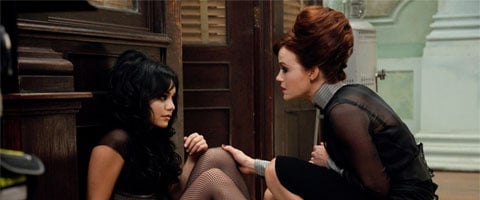
We could call this a midway point in your career, what do you concern yourself with most as being either typecast, or not typecast?
Carla: I hope I have more than, that I’m not midway yet, even though I have been doing it for a long time because I want to do it until I’m on my death bed. But I do feel that, also because theater is a big part of my life and I’ve really gotten to play some extraordinary characters in that world and some of the best ones are yet to come. Like I’m just getting to the age to be able to play them. So that’s exciting because Hollywood obviously isn’t necessarily, even though I do think there are wonderful roles, it’s sort of this thing about whatever your prime is and all this conversation, that when you’re actually reaching your prime it’s like a different thing than what people perceive to be Hollywood in it’s prime and all that stuff. But in truth for me it’s really just about continuing to play different characters and expand my horizons and I have so many characters I still want to play and I always love to mix it up. I mean I have a lot of dreams and a lot of goals and all those things but, that’s a sort of longer conversation, but in terms of things that just keep challenging me, really, with people that I respect. And that’s pretty much the deal. That’s always been my, it’s never changed I guess.
Are you concerned about missteps? Are you throwing caution to the wind and just going for what feels right?
Carla: I think you always have to go as an artist with instinct, I really do. I think if you start looking at your career from the outside, you’re screwed. It really is, it’s such a, at least for me. I think in order to achieve anything great, you will make missteps along the way. And there are certainly things I look at and think, “I wished that had turned out better,” or “Oh I tried for that and I didn’t really succeed at it,” but I’d much rather have that than play it safe. I don’t have it in me to play it safe, it’s really just too, I sort of like to be challenged. And it’s weird, it’s a weird profession to do that in because you make missteps in front of millions of people. But it’s kind of part of the job if you wanna, at the end of the day, I just want to get better and do things that I’m proud of.
I wondered at the end, you just talked about the two levels with both of your characters, the real world and this other world that it’s got, at the very end of the movie as we go out down the road we see a little farm plot with a scarecrow in it and I thought of the Wizard of Oz and thought he was making commentary, did you see this, as a journey?
Carla: I haven’t spoken to him about that have you?
Oscar: No, but I think that absolutely, yeah. The journey, again, into imagination and the power of imagination and I think that’s one of the big themes of the Wizard of Oz, absolutely.
Carla: Yeah. And I’m not in Kansas anymore in the sense that Sweet Pea is getting a chance to redefine her world
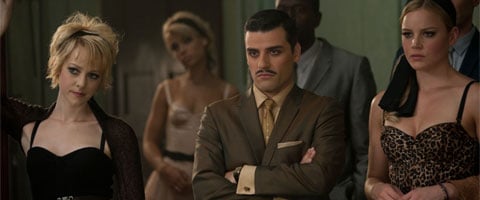
How could your character, have the orderlies, manager, how does he, basically, what was your discussion with Zack that went from whatever it was you were assigned to do whatever it was you ended up doing?
Oscar: Well exactly, yeah. Those things weren’t explicit, so to get specific, part of that was like, alright, well he’s an orderly but how is it that he seems to have control of this place, even the psychiatrist. And I got the impression that the place is kind of a neglected place and this person, through his will and through his quick talking has been able to assert some power in a very non-traditional way. Even when I got on set, you don’t see this, but when I got on set the set design was so cool, right next to my desk there’s this cage of a bunch of stuff, and it was all these little trinkets and knick knacks that he’s collected, that he’s taken off the girls when they come in. And you can see that he’s just got all this, almost to an OCD level. It was those kind of elements that started to inform, this is someone who’s taken control of this place because that’s what he wishes he could be he just doesn’t have the power to do that. And so then when you see him in this fantasy world, this is who he wants to be, someone that’s loved and important, and feared as well.
And the mustache?
Oscar: And the mustache was a whole character on its own!
When did that come in?
Oscar: Again, thinking about who this little orderly wishes he was, you know, he wishes he was a matinee idol of like the thirties and forties or something, and with a spray tan, and with a little mustache. And so that’s why it is kind of a shocking moment when all of a sudden at the end we see him again as the orderly and it’s such a different, you know he’s pale and sickly looking.
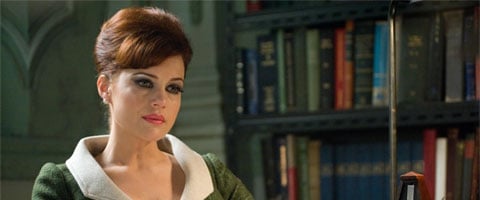
And Gorski’s piled hair?
Carla: I have to say I love, I mean that the hair and make-up and wardrobe, it’s just so fun. Yes I had so much hair on my head. And so many lashes on my eyes. I mean, truly at one point, Rosalina, the make-up artist who designed all the looks, she said to me at one point, “Carla, how many lashes do you think you have on?” and I was like, “Including my own?” and she was like, “Four.” Four sets of lashes! Full sets of lashes.
Oscar: That’s the secret to her bedroom eyes.
Carla: I look sleepy, but really I’m just trying to hold them up. Yeah, and the hair was definitely part of her. But that was the thing is this is a woman who put herself together in the morning, you know? And that’s also something of another time. You know now we just throw on some like, whatever lip gloss, and brush your hair, or something. It’s different, it was when women were, ladies were really ladies.
Oscar: And men as well, that was an important thing. He was very meticulous about what he wore and how he presents himself. With Michael Wilkinson the, costume designer, we talked a lot about how meticulous he is.
Did either of you keep souvenirs from this movie, take something home?
Oscar: Yeah I got the little lighter that she steals, with the gold dragon.
Carla: I don’t think I did. This is what happens though, I’m so remorseful of this guy. He got a [soundtrack], I’m like, “How did you get the CD?” I’m clearly far too honest.

Eric Eisenberg is the Assistant Managing Editor at CinemaBlend. After graduating Boston University and earning a bachelor’s degree in journalism, he took a part-time job as a staff writer for CinemaBlend, and after six months was offered the opportunity to move to Los Angeles and take on a newly created West Coast Editor position. Over a decade later, he's continuing to advance his interests and expertise. In addition to conducting filmmaker interviews and contributing to the news and feature content of the site, Eric also oversees the Movie Reviews section, writes the the weekend box office report (published Sundays), and is the site's resident Stephen King expert. He has two King-related columns.
'I Want To Leave It That Way.' There's Been Speculation About Diego Luna Wanting To Leave Andor After Season 2, But How Does He Feel About The Show Ending?
The Story Behind How Seth Rogen Got Several Directors To Play Themselves On The Studio (Ron Howard’s Thoughts About His ‘A–hole’ Appearance Are A+)
